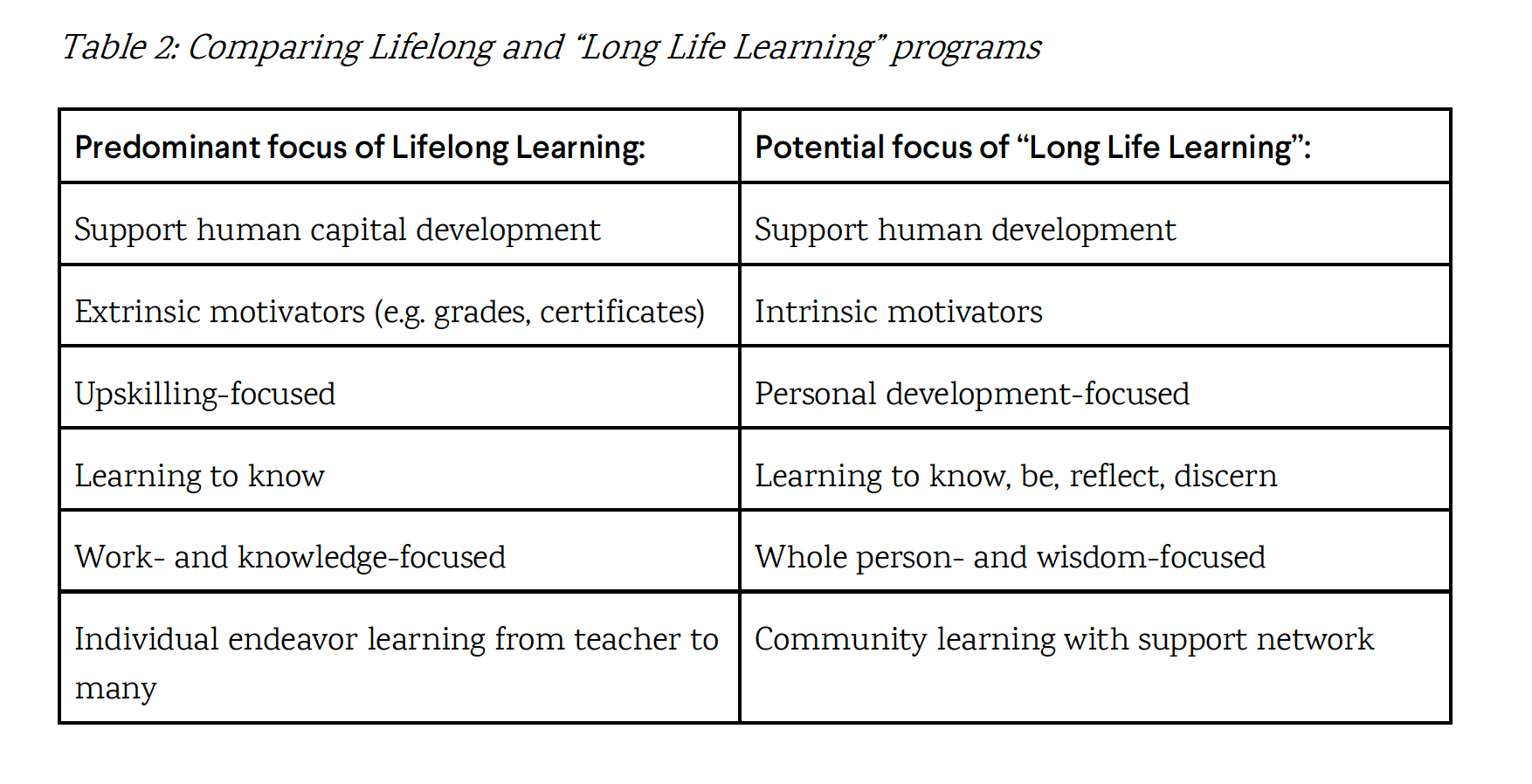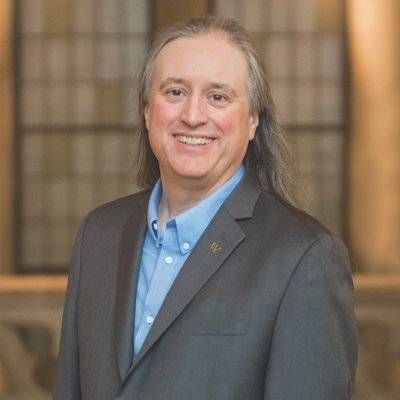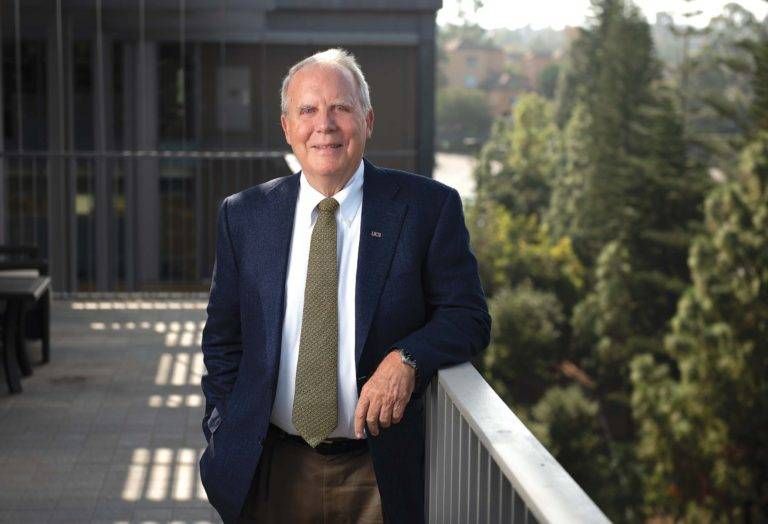Is the 60-Year Curriculum the Future of Learning?
Why some say: Goodbye, lifelong learning and hello, "long life learning"
Traditionally, we've led linear lives: going to school when we're young, working for decades and then retiring. But what if we went non-linear and our education didn't stop at college or high school? What if, instead, we kept up learning throughout our lives, especially the 150 million of us now in the second half?

That novel idea, fostered by thought leaders at the University of Washington, Harvard University, University of California at Irvine and others is sometimes dubbed "the 60-year curriculum."
As University of Washington Continuum College Vice Provost Rovy Branon says: A 60-year curriculum is "a modern approach to the learning that carries you through your working life. There is no set path. The educational journey is unique to each learner."
How Colleges Could Offer the 60-Year Curriculum
Branon says the 60-year curriculum requires colleges to change their traditional ways — by knowing what their graduates need throughout their careers; creating digital credentials with the degrees, certificates and other programs their students can show their current and prospective employers and helping older students fund their educations.
My favorite of Branon's ideas: colleges should have "learning concierges" who look at where you are in your employment and give you suggestions on how "to help you move to your next great thing."
Chip Conley, a Next Avenue Influencer in Aging and co-founder of the Modern Elder Academy, thinks of this as "long life learning."

That's the term he and management and design professor Ingo Rauth use in their recent White Paper, "The Emergence of Long Life Learning," built around the longer lives we're fortunate to have compared to earlier generations.
They say it's far more appropriate these days than traditional lifelong learning offered by colleges through disparate adult education programs.
Lifelong Learning vs. Long Life Learning
"Most lifelong learning programs focus little on the unique challenges and needs experienced by those navigating midlife," Conley and Rauth write. "Long life learning focuses on developing a sense of purpose and personal well-being by understanding the positive aspects of aging."
"Long life learning focuses on developing a sense of purpose and personal well-being."
Gary Matkin, dean of University of California at Irvine's Division of Continuing Education and vice provost of the school's Division of Care Pathways, says: "The university, to fulfill its role, doesn't finish when the student graduates. We've got to continue our goal to be there for people hitting life transitions, wherever they are."

Not only is the 60-year curriculum and long life learning good for the mind (potentially helping to stave off dementia). It can be extremely beneficial — no, essential — for older workers, by keeping their knowledge and skills up-to-date. A McKinsey Global Institute paper estimated that 80% of the workforce lacks the skills for most jobs that will be available in the next five to 10 years.
Yvonne Sonsino, author of "The New Rules of Living Longer," talks about what she calls "the camel-hump" model of careers, where workers take a break to learn or relearn something somewhere before heading to their next work hump
The pandemic boom in online classes, webinars and conferences shows there's an appetite for education.
Mitchell Stevens, a Stanford Graduate School of Education sociologist who helped design a May 2020 Longevity Project/Morning Consult online learning poll, said: "The quarantines may prove to be a watershed in the progress of online learning for many Americans." In that survey, 90% of boomers rated online webinars and conferences beneficial.
In his recent excellent PBS pledge drive special, "Life's Third Age," AgeWave CEO Ken Dychtwald asked: "What are you going to do to make the most of your longevity? Where will you spend your longevity bonus?"
The Pandemic Makes This More Urgent
One good answer could be: on a 60-year curriculum. The pandemic's devastating toll on jobs is making that idea even more compelling.
"This is decision-making time for people wondering whether now is the time to do something to make themselves more marketable by skilling up in their profession or learning new skills to make a career change," Branon said.
That doesn't necessarily mean going back to college, although that's one way to soak in the learning (virtually or, if pandemic-safe, in person). Just 0.2% of college students are 55 and older, incidentally.
If you do want to take college classes, AARP and Kiplinger's have published useful lists of free or cheap ones for people over 50 or 55 in all 50 states.
Best Colleges for Adult Learners
And The Washington Monthly has its 2019 Best 4-Year Colleges and 2-Year Colleges for Adult Learners, rating schools on things such as services for adult students and percentage of students over 25 (yes, that's how higher ed typically defines "adult students"). Its top 4-year college: Golden Gate University, which specializes in helping adults reach their professional goals and is based in San Francisco. Its top 2-year college: Renton Technical College, a community college in Renton, Wash.
Aside from the universities mentioned earlier with 60-year-curriculum offerings, there are also a growing number of colleges, universities, institutes and academies with programs specifically for midlifers.
Many MOOC classes teach students skills to help them in their careers.
Next Avenue has written about a number of them — Stanford University's Distinguished Careers Institute, in "Stanford Is Looking for a Few Good Midlifers" and, in "Coming Soon, 2 New Encore Career Programs at Colleges." Harvard University's Advanced Leadership Initiative, Notre Dame's Inspired Leadership Initiative, University of Minnesota's Advanced Careers Initiative, the University of Texas' TOWER Fellows Program (full disclosure: it is a sponsor of Next Avenue), the Encore Transition Program at Union Theological Seminary in New York City, the Encore Hamline Fellows at Hamline College in St. Paul, Minn., Encore!Connecticut at University of Connecticut in Hartford and Fairfield counties.
Northeastern University in Boston has a strategic plan for expanding its lifelong and experiential learning opportunities. And, as I wrote in 2019, more than 50 colleges and universities around the world are part of the Age-Friendly University Global Network, following 10 principles to better serve older students.
Adult Classes Go Virtual
David Jarmul wrote for Next Avenue in "No Way to Go to Adult Classes? No Problem" that the Osher Lifelong Learning Institute (maybe one day it'll be the Long Life Learning Institute?) and One Day University — where top professors give popular lectures to adults — lately have been teaching virtually.
Recently, Conley's 100% in-person Modern Elder Academy, in Mexico's Baja peninsula, altered its program, too, due to pandemic. Now, students take "sabbatical sessions" for two weeks or longer (two-week cost: $3,500 for tuition, lodging and meals). Previously, participants came for a week and the fee was $5,500.

But maybe you'd rather look into a MOOC (Massive Open Online Course). That's a course open to an unlimited number of students, typically free and taught by college professors or other experts. Many MOOC classes teach students skills to help them in their careers. Coursera, EdX and Udacity are some of the big players in MOOCville, which has been seeing triple-digit enrollment spikes and millions of new users during COVID-19.
In May, I enrolled in a terrific MOOC from Journalism in the Americas: "Journalism in a pandemic: Covering COVID-19 now and in the future." It taught me a good deal about the coronavirus and previous pandemics. One of its guest speakers was epidemiologist and Next Avenue Influencer in Aging Michael Osterholm, who's now a household name but was new to me and much of America back then.
Or you could teach yourself. Watch YouTube tutorials or read books to widen your knowledge and maybe get some DIY job training.
Whether more colleges and universities will adopt the 60-year curriculum is an open question.
"Higher ed needs to pivot to a model that recognizes the new need of the individual learner to access education continuously, though episodically," said Branon.
But Matkin, of UC Irvine, is optimistic. "Even people using the sixty-year curriculum in their vocabulary is an indication that the idea is catching on."


